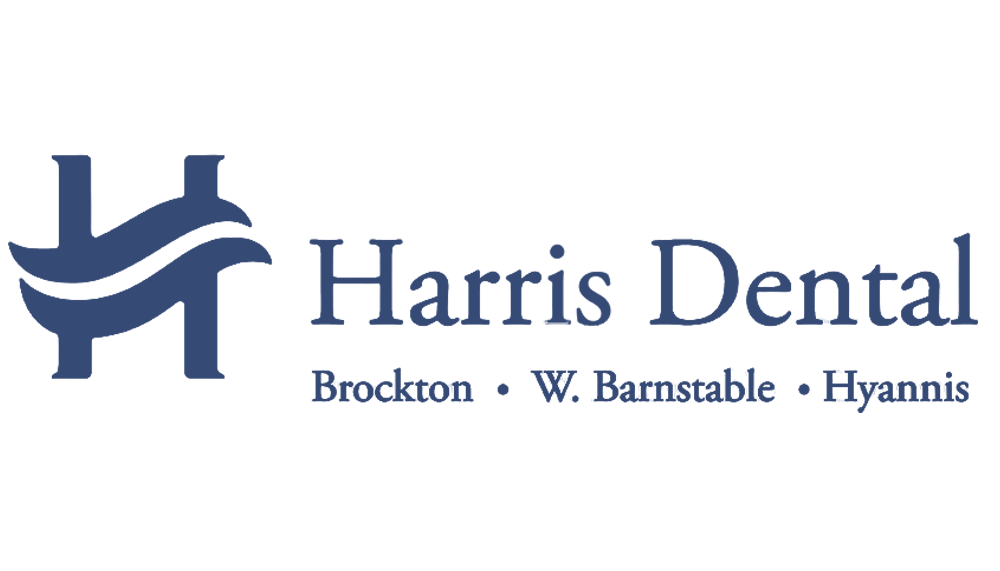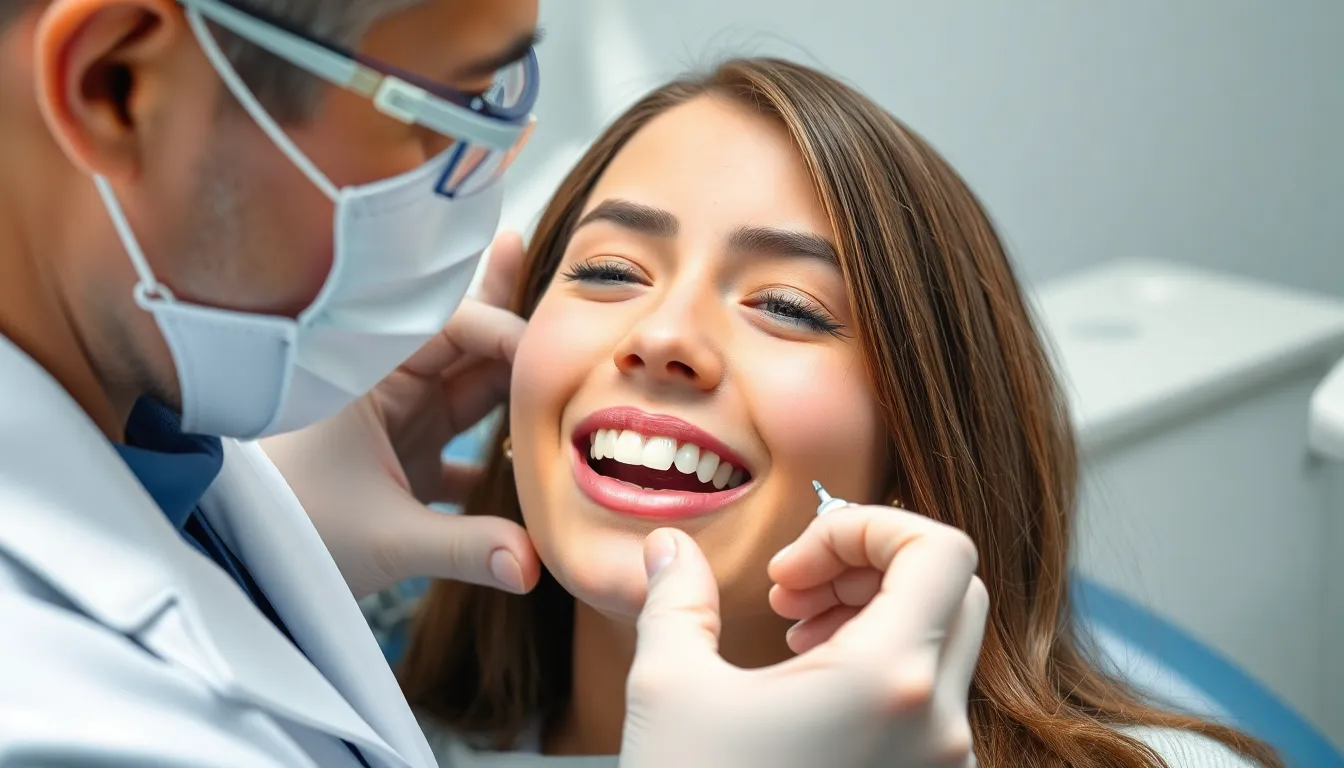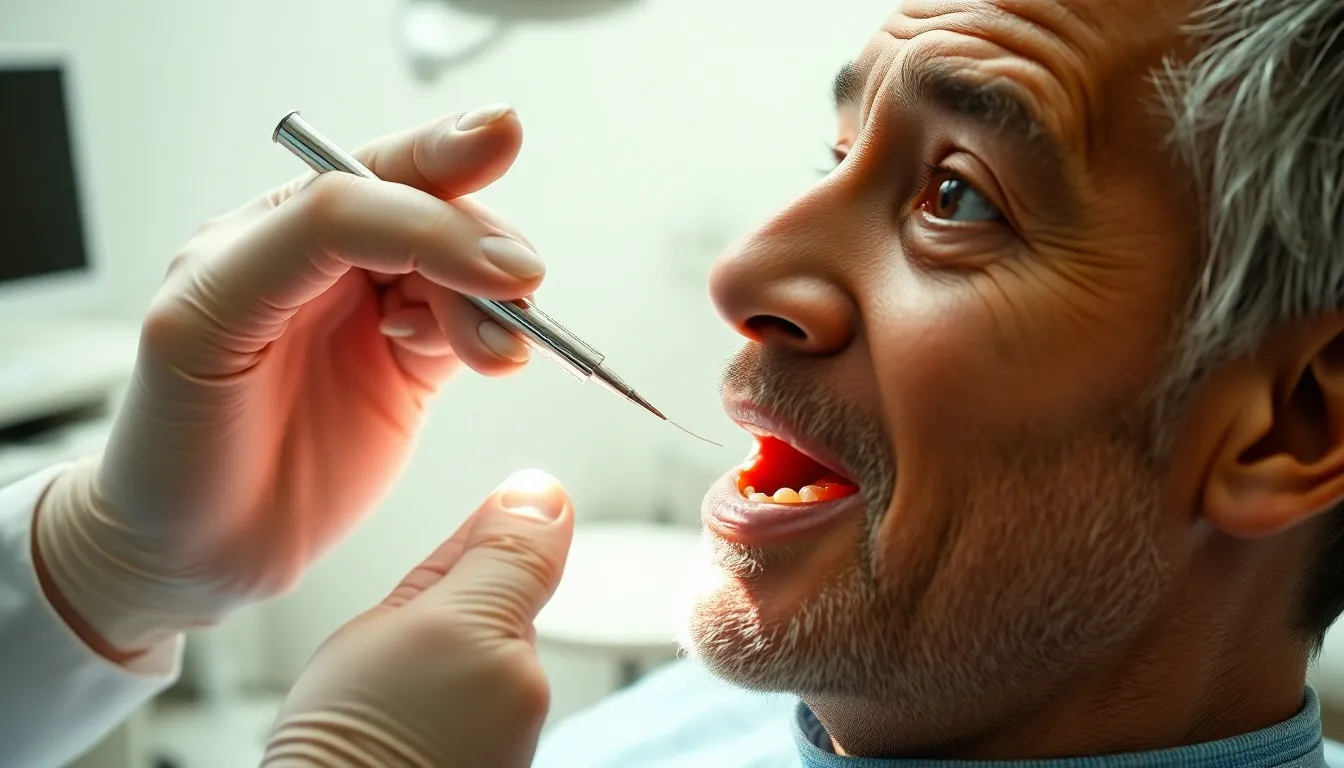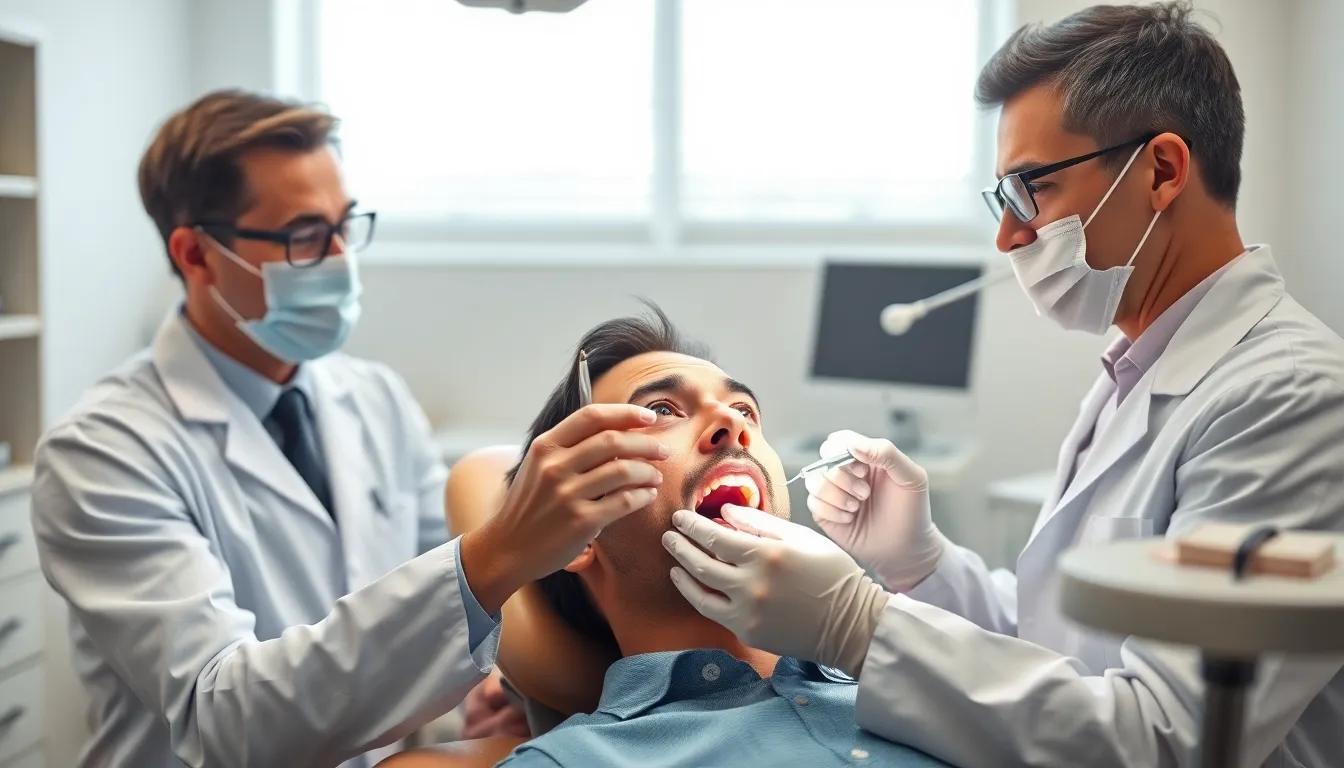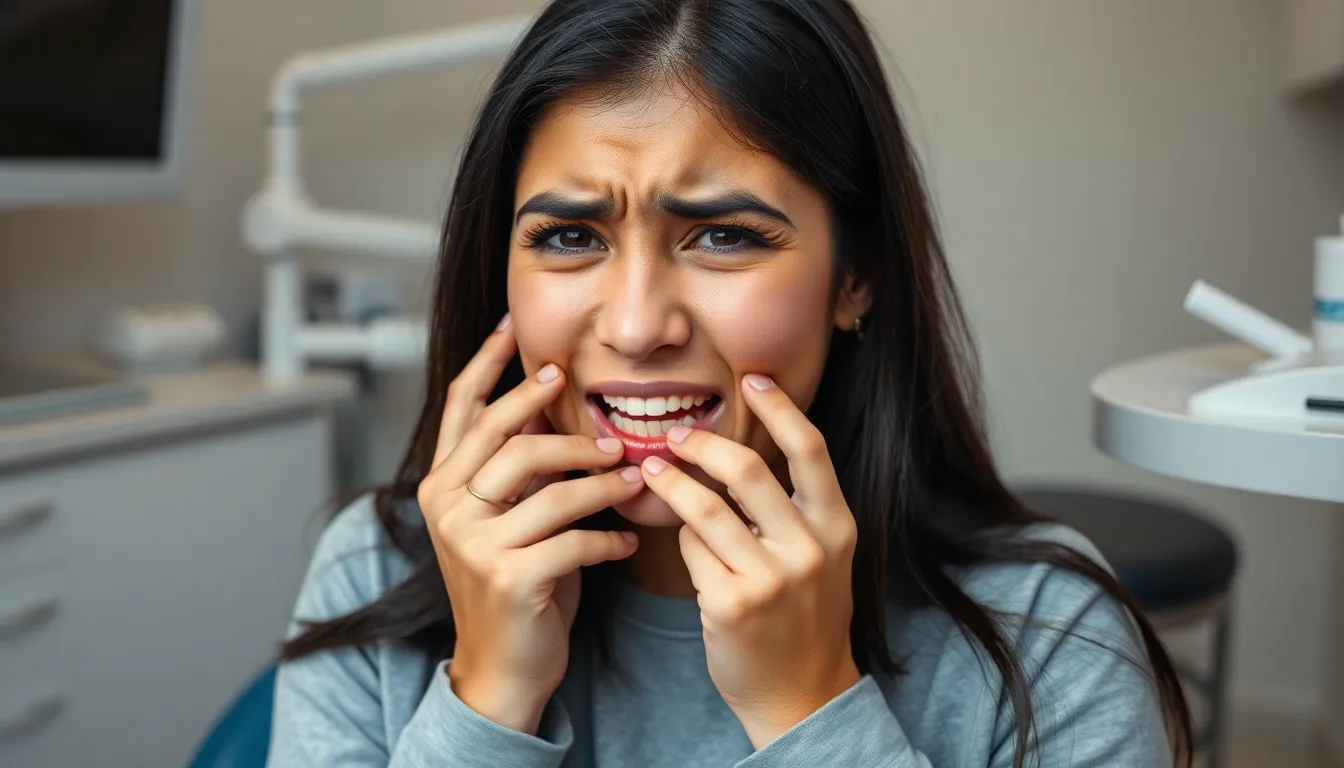Are you suffering from jaw tension that disrupts your daily life? A jaw relaxer might be the solution you’ve been searching for. These specialized devices or techniques can provide relief from TMJ pain, teeth grinding, and jaw clenching.
Jaw relaxers come in various forms, from custom mouthguards to exercises and medications. They work by reducing muscle tension and creating proper alignment in your temporomandibular joint. If you’re experiencing headaches, facial pain, or difficulty chewing, it’s worth exploring how these tools can help restore comfort and function to your jaw.
What Is a Jaw Relaxer and How Does It Work?
A jaw relaxer is a device or treatment designed to reduce tension in the jaw muscles and alleviate temporomandibular joint (TMJ) discomfort. These answers work by targeting the underlying causes of jaw tension, helping muscles release their grip and promoting proper joint alignment.
Types of Jaw Relaxers Available
Jaw relaxers come in several forms, each addressing different aspects of jaw tension. Custom-fitted mouthguards create a barrier between your upper and lower teeth, preventing grinding and clenching during sleep. Portable massage devices apply targeted pressure to tense jaw muscles, stimulating blood flow and encouraging relaxation. Facial exercises strengthen weak muscles while stretching tight ones to create better balance. Thermal treatments like hot or cold packs reduce inflammation and soothe soreness around the TMJ area. Biofeedback systems train you to recognize when you’re tensing your jaw, allowing you to consciously relax these muscles throughout the day.
Dr. Harris often shares the story of a patient who suffered from debilitating morning headaches for years before discovering that a custom nightguard completely transformed her quality of life. “She didn’t realize how much her nightly clenching was affecting her until she experienced what it felt like to wake up without pain,” he explains.
Active Ingredients in Jaw Relaxers
The effectiveness of jaw relaxers depends largely on their active components. Muscle relaxants like cyclobenzaprine temporarily reduce spasms in overactive jaw muscles. Anti-inflammatory compounds such as arnica and CBD oil help decrease swelling around the joint area. Magnesium supplements promote muscle relaxation at a cellular level by regulating calcium uptake. Botulinum toxin injections (Botox) temporarily paralyze overactive muscles for 3-6 months in severe cases. Vitamin B complex supports overall nerve function and can reduce stress-related clenching.
Common Causes of Jaw Tension and Pain
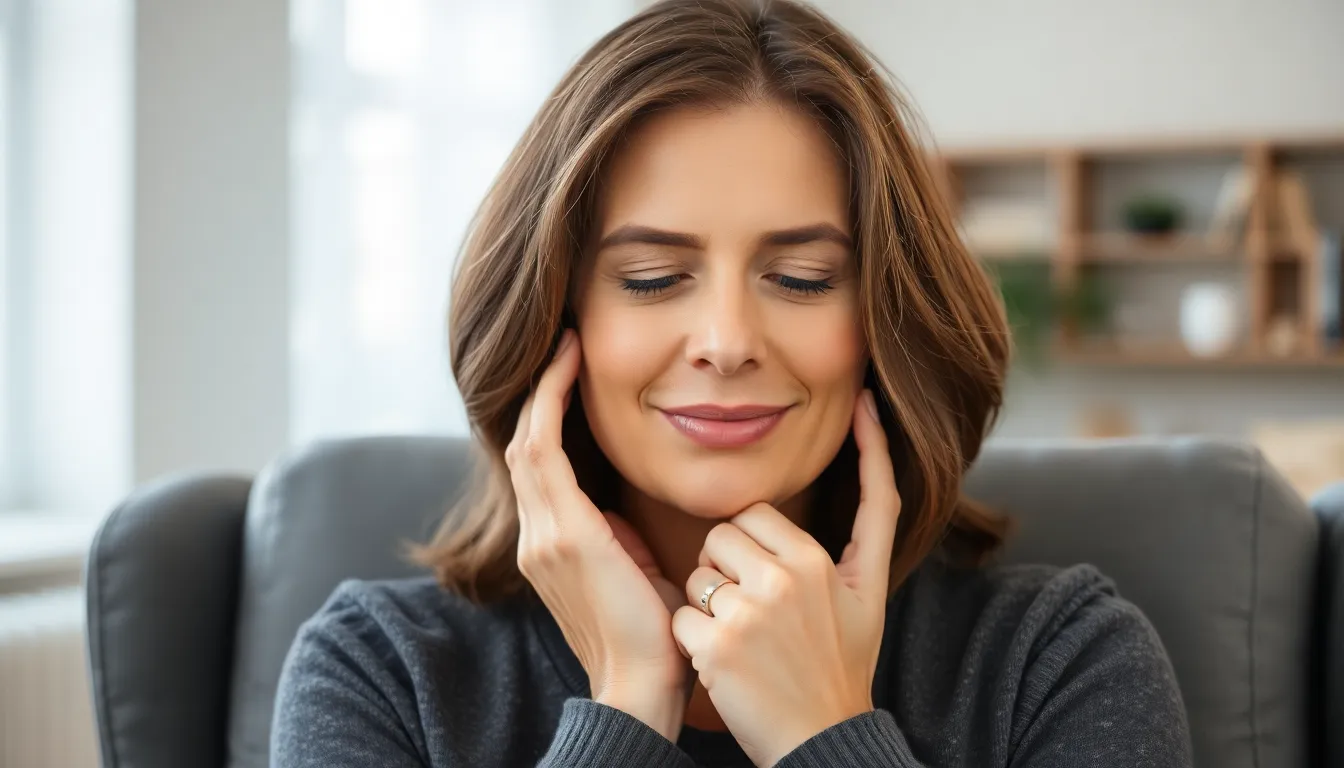
Jaw tension and pain often stem from exact conditions that affect the muscles and joints in your facial area. Understanding these underlying causes helps identify appropriate jaw relaxer treatments for your exact situation.
TMJ Disorders
Temporomandibular Joint (TMJ) disorders directly impact the joint connecting your jawbone to your skull, creating important discomfort and functional problems. These disorders typically manifest as soreness around the jaw area, restricted mouth movement, and distinctive clicking or popping sounds when opening or closing your mouth. Common triggers include physical trauma to the jaw, arthritis developing in the joint, or misalignment issues that place excessive pressure on the joint structure. Many patients like Sarah, who visited our clinic last year, experienced debilitating daily headaches before being diagnosed with a TMJ disorder. Her symptoms improved dramatically after starting a comprehensive treatment plan that included a custom-fitted splint and targeted muscle relaxation techniques.
Bruxism (Teeth Grinding)
Teeth grinding or clenching, medically known as bruxism, creates excessive strain on your jaw muscles and can occur unconsciously during sleep or stressful situations. This involuntary habit places tremendous pressure on your entire jaw structure, leading to muscle fatigue, facial pain, and eventual damage to both teeth and the temporomandibular joint itself. Dr. Harris notes that “nearly 70% of my patients with unexplained jaw pain discover they’ve been grinding their teeth at night without realizing it.” Stress often serves as a primary trigger, with many patients reporting increased grinding during particularly challenging periods at work or home. The continuous muscle contraction involved in bruxism can leave your jaw feeling tight and painful even hours after the grinding has stopped, creating a cycle of tension that’s difficult to break without intervention.
Benefits of Using a Jaw Relaxer

Jaw relaxers offer important advantages for those suffering from temporomandibular joint disorders and related conditions. These muscle relaxant medications target the underlying tension that causes discomfort and functional limitations in the jaw area.
Pain Relief Benefits
Jaw relaxers effectively reduce tight, overactive muscles in the jaw and face that contribute to TMJ-related pain. Clinical studies show that medications like cyclobenzaprine (Flexeril), carisoprodol (Soma), and tizanidine (Zanaflex) decrease muscle spasms and diminish perceived jaw-muscle pain intensity. Tolperisone hydrochloride, in particular, produces a small but important reduction in experimental jaw-muscle pain according to recent research. You’ll find these muscle relaxants especially helpful for targeting pain that doesn’t fully respond to NSAIDs alone, addressing the muscle tension component that often underlies chronic jaw discomfort. Many patients report feeling relief within 30-60 minutes after taking these medications, with effects lasting several hours.
Dr. Todd B. Harris notes, “In my practice, I’ve seen remarkable improvements in patients who incorporate appropriate muscle relaxants into their TMJ treatment plan. The key is finding the right medication and dosage for each individual’s exact symptoms.”
Improved Sleep Quality
The sedative properties of jaw relaxers create a dual benefit for TMJ sufferers who struggle with nighttime discomfort. Taking these medications at bedtime helps reduce jaw muscle tension that might otherwise disrupt sleep patterns. Patients report falling asleep more quickly and experiencing fewer nighttime awakenings due to jaw pain or discomfort. The muscle-relaxing effects continue throughout the night, preventing the clenching and grinding that commonly occur during sleep. You’ll need to consider potential side effects such as drowsiness, dizziness, and dry mouth when using these medications, particularly if you operate machinery or drive early in the morning.
Top Jaw Relaxers on the Market
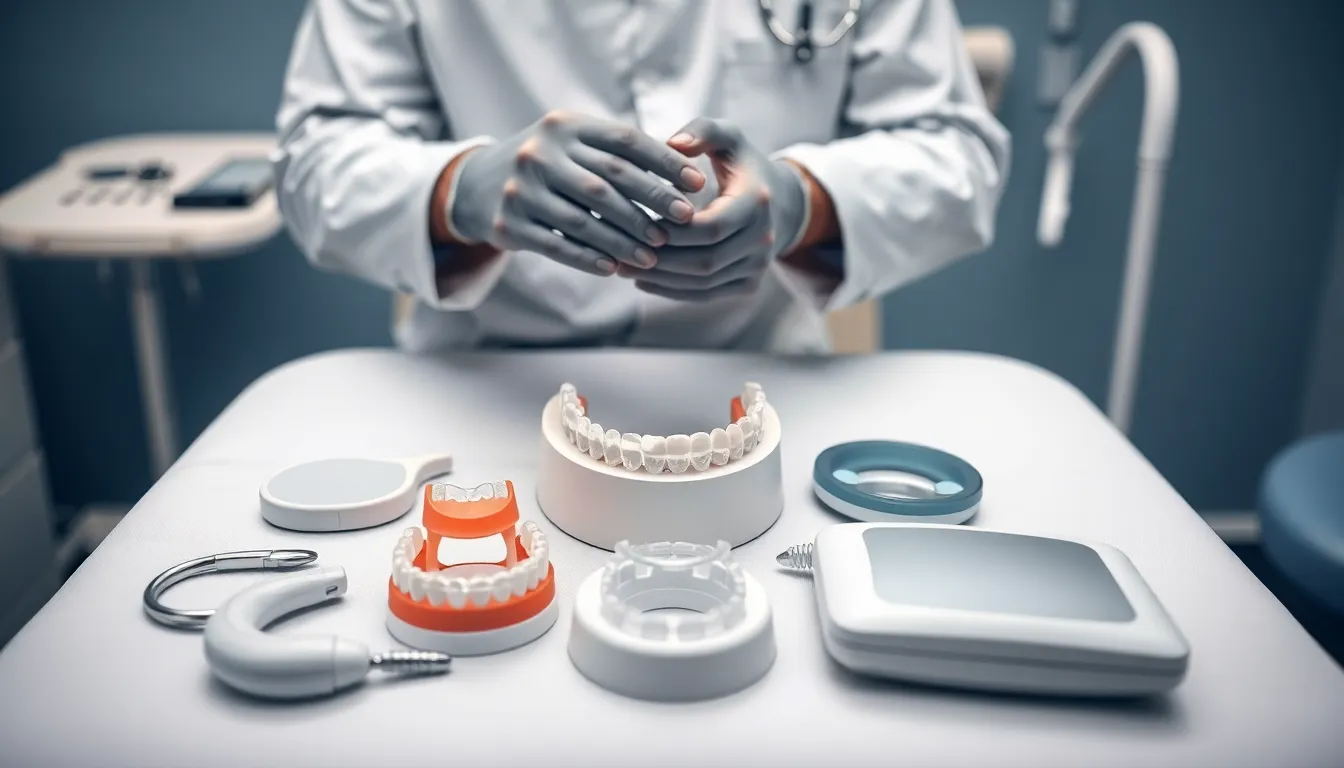
The jaw relaxer market offers several effective products designed to alleviate TMJ pain and reduce jaw tension. These specialized devices range from passive stretching tools to electronic massagers, each targeting different aspects of jaw discomfort.
Prescription Options
Prescription jaw relaxers typically come in the form of custom-made dental appliances that require professional fitting. Your dentist or TMJ specialist creates these splints or night guards specifically for your mouth’s unique structure, ensuring optimal support and alignment. These devices work by stabilizing your jaw position and reducing muscle strain more precisely than over-the-counter alternatives. Dr. Todd B. Harris often recommends prescription options for patients with severe TMJ disorders, noting that “the customization factor makes a important difference in treatment outcomes for chronic sufferers.” A dental examination is necessary before receiving these appliances, as proper fitting ensures maximum effectiveness in relieving jaw tension and preventing further complications.
How to Choose the Right Jaw Relaxer for Your Needs

Selecting an effective jaw relaxer requires matching the product to your exact condition and preferences. The right choice depends on understanding your symptoms, considering your budget constraints, and evaluating how easily you can incorporate the device into your daily routine.
Considering Your Exact Symptoms
Different jaw relaxers target exact TMJ issues, making symptom assessment crucial for effective treatment. Facial massagers like the Wildling Empress Wand ($59), Nurse Jamie Instant UpLift ($69), and Sarah Chapman Skinesis Facialift ($50) alleviate tension by stimulating facial muscles around the jaw area. These tools excel at reducing jaw pain, tension, and puffiness while promoting lymphatic drainage through targeted pressure on both internal and external mouth areas. TMJ-exact massage tools such as the Myofree Solution TMJ Massage Tool Kit focus on releasing internal jaw muscles, particularly the pterygoid, which often holds important tension in TMJ sufferers.
For those experiencing teeth grinding, specialized mouth guards offer protection against further damage and help reduce jaw strain during sleep. Sarah, a marketing executive who suffered from morning headaches for years, found tremendous relief after her dentist recommended a custom mouth guard. “The difference was immediate—I woke up without that familiar ache for the first time in a decade,” she explains.
Ergonomic TMJ massagers like the Fresh Knight TMJ Relief Massager provide customizable vibration levels specifically designed to address jaw pain, stiffness, and related headaches. These waterproof, rechargeable devices incorporate vagus nerve stimulation features, making them versatile options for comprehensive symptom management.
Budget and Accessibility Factors
Cost considerations play a important role in selecting the right jaw relaxer for long-term use. Facial massagers typically range from $50-$70, offering dual benefits for both cosmetic enhancement and therapeutic relief. TMJ-exact massage kits often come bundled with educational resources to maximize effectiveness, though prices vary based on included components and specialized features.
Mouth guards represent a more important investment, especially custom-fitted versions prescribed by dental professionals. Dr. Todd B. Harris notes, “While over-the-counter options might seem cost-effective initially, custom guards provide precise alignment that prevents further damage and delivers better long-term value for chronic sufferers.”
Accessibility factors include how easily you can incorporate the device into your routine. The Fresh Knight TMJ massager emphasizes user comfort with ergonomic design elements that encourage consistent use. Portable options allow for discreet treatment throughout the day, even at work or while traveling. Battery life, ease of cleaning, and storage requirements also impact how regularly you’ll use your chosen device.
Your unique combination of symptoms, budget constraints, and lifestyle needs eventually determines which jaw relaxer will provide optimal relief. Consulting with a healthcare provider offers personalized guidance customized to your exact condition and treatment goals.
Potential Side Effects and Precautions

Jaw relaxers effectively reduce TMJ pain but come with several potential side effects you should know about. Most commonly, patients experience drowsiness or sedation that can significantly impact your ability to drive or operate machinery. Dizziness and fatigue frequently occur as your central nervous system responds to the medication. Dry mouth affects many users, potentially increasing your risk of tooth decay and gum disease if proper dental hygiene isn’t maintained.
Other common side effects include:
- Headaches that may develop shortly after taking the medication
- Constipation and nausea that can persist throughout treatment
- Nervousness or agitation in certain individuals
- General feelings of weakness or discomfort
In rare cases, jaw relaxers can cause more serious reactions requiring immediate medical attention. These include confusion or unsteadiness, mental depression, difficulty urinating, skin rashes, and signs of overdose such as seizures or hallucinations.
“I’ve seen patients who experience important relief from TMJ pain with muscle relaxants, but proper monitoring is crucial,” notes Dr. Todd B. Harris. “One patient, Michelle, initially experienced troublesome drowsiness with her prescription. After adjusting her dosage and timing the medication before bedtime, she achieved pain relief without the daytime sedation that was interfering with her work.”
Taking proper precautions helps minimize risks associated with jaw relaxers. These medications should only be used exactly as prescribed, typically for short-term treatment periods to prevent dependency. Alcohol must be avoided completely while taking muscle relaxants due to the compounded sedative effects. Your healthcare provider needs to know about any pre-existing conditions like liver disease or depression before starting treatment.
Regular dental check-ups become particularly important during treatment to address the dry mouth side effect. Maintaining thorough oral hygiene helps protect your dental health while using these medications. If you notice persistent or worsening side effects, contact your doctor immediately rather than attempting to adjust dosage yourself.
For TMJ treatment, muscle relaxants often work best when incorporated into a comprehensive approach including physical therapy and stress management techniques. Many patients find that combining medication with other treatment modalities provides the most effective relief while minimizing potential side effects.
Alternative Treatments for Jaw Tension
Beyond traditional jaw relaxers, several alternative approaches effectively reduce jaw tension and provide relief from TMJ discomfort. These evidence-based methods offer complementary or standalone options for managing jaw-related pain without relying solely on medication or devices.
Physical Therapy Approaches
Physical therapy techniques target the root causes of jaw tension through specialized exercises and manual manipulation. Jaw exercises consistently demonstrate effectiveness in treating temporomandibular disorders by improving mobility and reducing muscle tension around the jaw joint. These exercises typically involve gentle stretching and strengthening movements that restore proper function to the temporomandibular joint.
TMJ manipulation and mobilization techniques provide another powerful physical therapy option. Skilled practitioners gently grasp your jaw and apply controlled movements to reduce muscle tightness and improve alignment. These hands-on techniques help restore proper joint function and create immediate relief for many patients.
“Many of my patients experience important improvement after just a few sessions of targeted jaw manipulation,” notes Dr. Todd B. Harris. “One particularly memorable case involved a professional speaker who had developed severe jaw tension from public speaking engagements. After implementing a regimen of exact jaw exercises and weekly manual therapy, she reported a 90% reduction in pain and was able to resume her career without limitations.”
Lifestyle Modifications
Simple changes to your daily habits can dramatically reduce jaw tension and prevent future episodes. Relaxation techniques focusing on conscious breath control effectively calm tense jaw muscles. Taking slow, deep breaths signals your body to relax, reducing pain and muscle spasms throughout your jaw and face.
Heat application brings substantial relief to tight jaw muscles by increasing blood flow and promoting relaxation. A warm compress applied to the jaw for 10-15 minutes several times daily helps loosen tight muscles and alleviate discomfort.
Gentle self-massage of the jaw muscles relaxes tension points and improves circulation. Using your fingertips, apply moderate pressure in circular motions along your jawline, temples, and cheeks to release built-up tension.
Stress management practices directly impact jaw tension levels since emotional stress commonly manifests as physical tension in the jaw. Meditation, yoga, and mindfulness exercises teach your body to recognize and release tension before it causes pain.
Dietary adjustments help many patients minimize jaw strain. Temporarily avoiding hard, chewy foods gives inflamed jaw muscles time to heal. Cutting food into smaller pieces and focusing on softer options reduces the workload on your temporomandibular joint during healing phases.
Conclusion
Finding the right jaw relaxer can transform your quality of life when dealing with TMJ pain and tension. Whether you choose custom mouthguards physical therapy techniques or medication options the key is identifying what works best for your exact symptoms.
Remember that effective treatment often combines multiple approaches including lifestyle modifications and stress management techniques. Don’t hesitate to consult with healthcare professionals who can guide you toward the most appropriate solution.
With the right jaw relaxer you’ll likely experience improved sleep reduced pain and better overall jaw function. Take that first step toward relief today and rediscover the comfort of a relaxed jaw and tension-free facial muscles.
Frequently Asked Questions
What is a jaw relaxer?
A jaw relaxer is a device or treatment designed to reduce tension in the jaw muscles and alleviate TMJ discomfort. Options include custom-fitted mouthguards, portable massage devices, facial exercises, thermal treatments, and biofeedback systems. Each type targets different aspects of jaw tension to provide relief from symptoms like pain, teeth grinding, and difficulty chewing.
What causes jaw tension and pain?
Jaw tension and pain commonly result from Temporomandibular Joint (TMJ) disorders and bruxism (teeth grinding). These conditions can be exacerbated by stress, poor posture, dental problems, and jaw misalignment. Understanding the underlying cause is crucial for identifying appropriate treatment options and developing an effective management plan.
How do jaw relaxer medications work?
Jaw relaxer medications work by targeting the underlying muscle tension that causes discomfort. Muscle relaxants like cyclobenzaprine, carisoprodol, and tizanidine reduce muscle spasms and pain intensity by affecting the central nervous system. Most patients experience relief within 30-60 minutes of taking these medications, which also have sedative properties that can improve sleep quality.
What are the benefits of using jaw relaxers?
Jaw relaxers provide significant pain relief for TMJ disorders by reducing muscle tension. They decrease headaches and facial pain, improve jaw mobility, enhance sleep quality, and prevent teeth damage from grinding. Regular use can lead to long-term improvement in jaw function and overall quality of life, especially when part of a comprehensive treatment approach.
What types of jaw relaxers are available on the market?
The market offers various jaw relaxers including custom-fitted dental appliances, over-the-counter mouthguards, portable massage devices, and electronic massagers. Prescription options typically provide better results for chronic TMJ sufferers as they’re professionally fitted by dentists or specialists to ensure optimal support, alignment, and muscle strain reduction.
How do I choose the right jaw relaxer for my needs?
Choose a jaw relaxer based on your specific symptoms, budget, and daily routine. Consider whether you need relief from grinding, clenching, or general tension. Custom-fitted mouthguards offer the best long-term value despite higher upfront costs. Consult with a healthcare provider for personalized recommendations tailored to your condition and treatment goals.
What are the potential side effects of jaw relaxers?
Common side effects of jaw relaxer medications include drowsiness, dizziness, dry mouth, headaches, constipation, and nervousness. Serious reactions are rare but possible. Physical devices like mouthguards may cause temporary discomfort, increased salivation, or speech changes initially. Always use jaw relaxers as prescribed and attend regular dental check-ups to monitor for side effects.
Are there alternative treatments for jaw tension?
Yes, alternative treatments include physical therapy with specialized exercises and manual manipulation, acupuncture, biofeedback, and stress management techniques. Lifestyle modifications such as relaxation exercises, heat application, gentle self-massage, and dietary adjustments can also significantly reduce jaw tension. Many patients find a combination of approaches works best for comprehensive relief.
How long does it take to see results from jaw relaxers?
Medication-based jaw relaxers typically provide relief within 30-60 minutes. Physical devices like custom mouthguards may offer immediate improvement in some symptoms, but optimal results often develop over 2-4 weeks of consistent use. Long-term benefits, including reduced frequency and intensity of jaw pain episodes, generally become apparent after 1-3 months of regular treatment.
Can jaw tension be permanently cured?
While jaw tension can be effectively managed, a permanent “cure” depends on the underlying cause. For stress-related tension, lifestyle changes and relaxation techniques may provide lasting relief. For structural issues like TMJ disorders, ongoing management is typically needed. Many patients achieve significant long-term improvement through consistent treatment and preventive measures.
